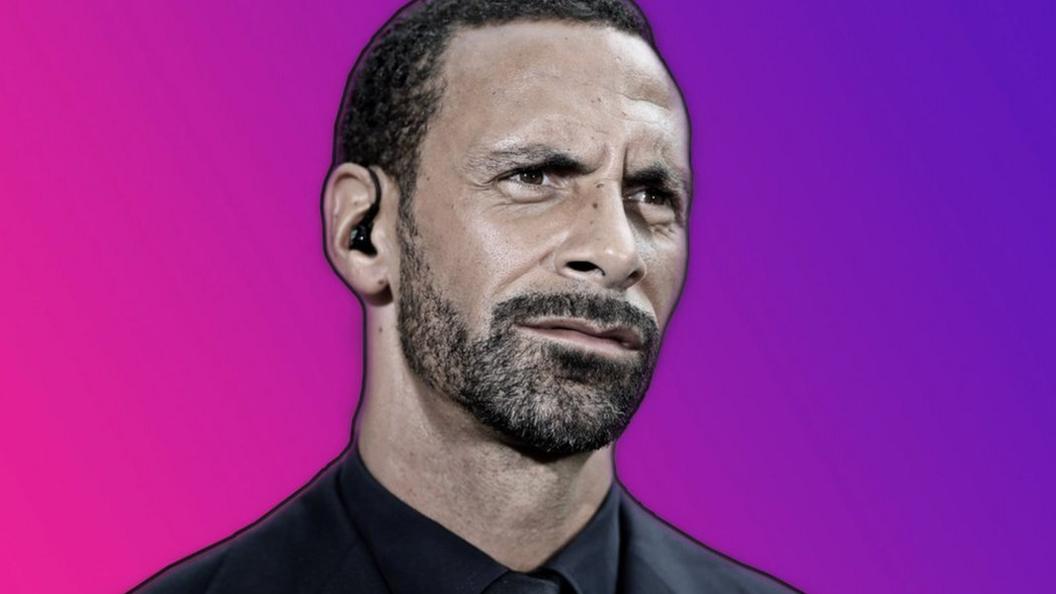Queen's Birthday Honours: Raheem Sterling receives honour for work on racial equality
- Published
- comments

Raheem Sterling will receive an MBE from the Queen for his work to promote racial equality.
The Queen's Birthday Honours List recognises people for their amazing achievements or service to the country. The most common honours are OBE (Officer of the Order of the British Empire) and MBE (Member of the Order of the British Empire).
Sterling been subjected to online abuse and racism throughout his career. He has spoken out many times against racism on and off the pitch and in 2019 took part in an anti-racism campaign, No Room For Racism.
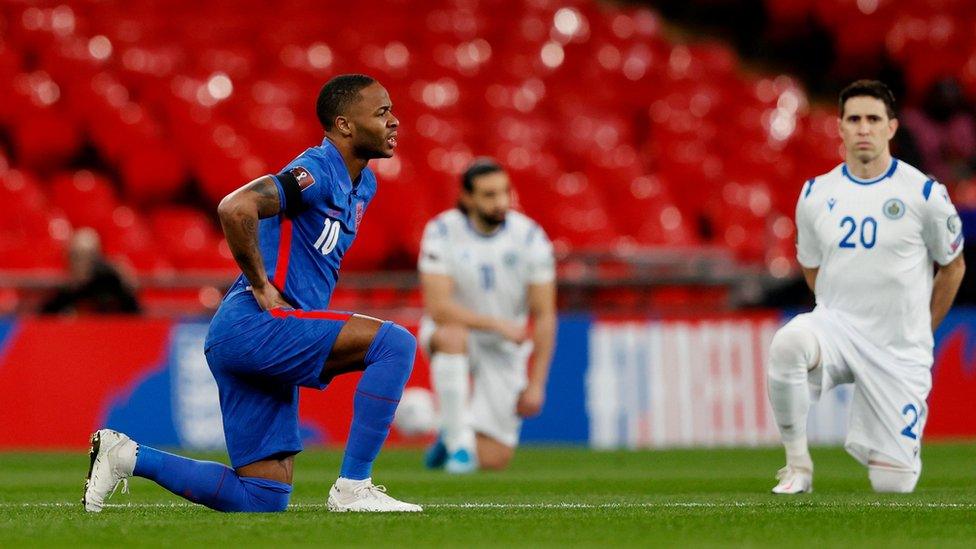
After the Black Lives Matter movement last year, Sterling said "now is the time to act" on racism.
The honour comes as many players are subject to racist abuse online and there is discussion around whether footballers should take the knee to highlight the issue before games, which has seen players met with boos.
A spokesman for the anti-racism charity Show Racism the Red Card said: "We congratulate Raheem on having his commitment to highlighting the racial inequalities of society recognised.
"The same inequalities that have compelled players and the England squad to take the knee and to continue taking the knee to keep these issues at the forefront of our minds."
Who else is on the Queen's Birthday Honours List?
Jordan Henderson
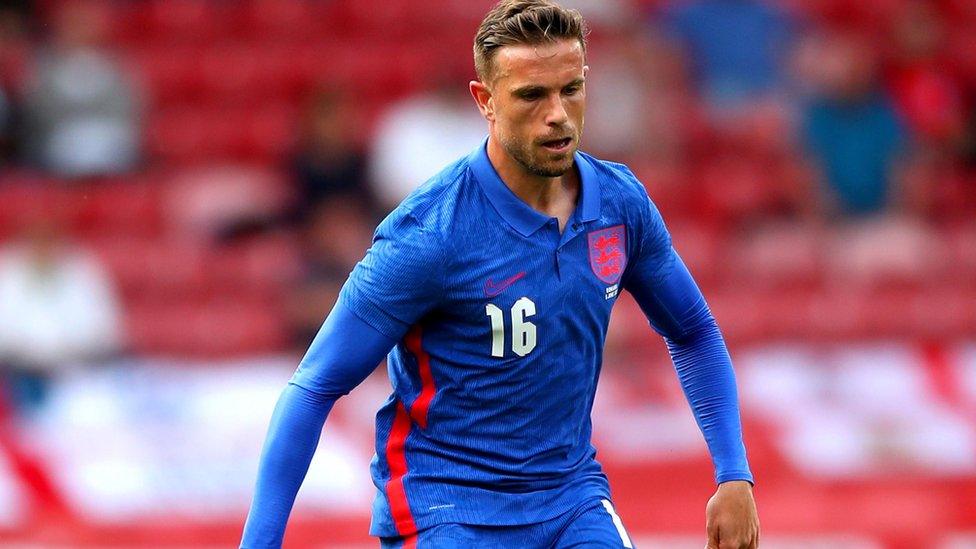
Liverpool and England player Jordan Henderson has received an MBE for his services to football and charity.
Henderson raised £4 million for the NHS from fellow Premier League footballers through the Players Together appeal.
Prue Leith
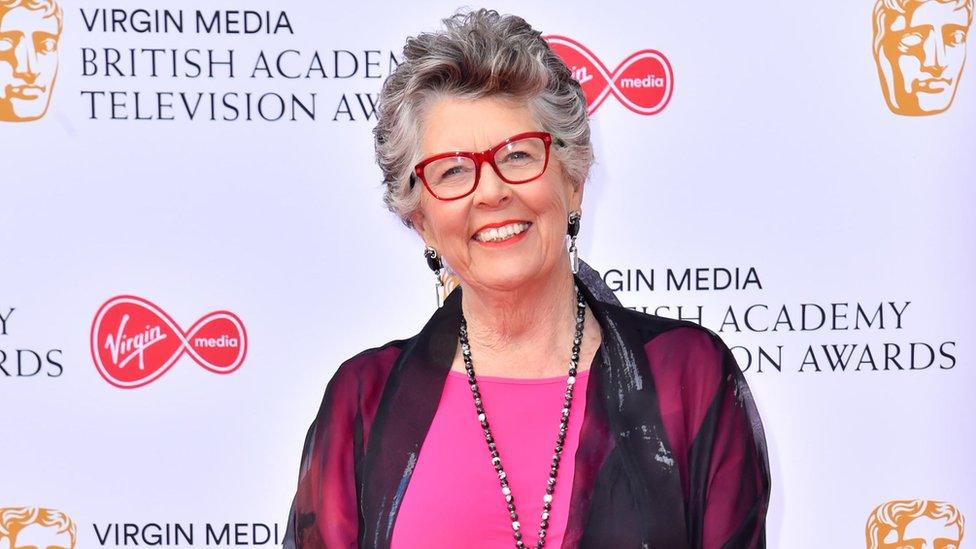
The Great British Bake Off judge Prue Leith has been made a dame in the Queen's Birthday Honours.
The judge has been awarded because of her services to food, broadcasting and charity.
This isn't the first honour for Leith, who was made an OBE in 1989 and CBE in 2010.
Amika George
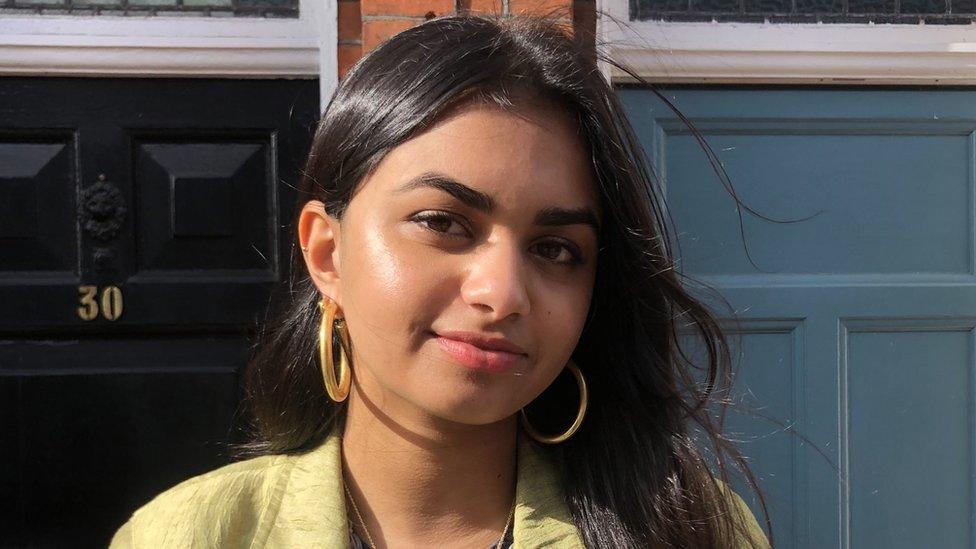
The youngest person on the honour list is 21-year-old Amika George, who founded the Free Periods campaign.
George campaigned for free period products to be provided at schools, so children didn't have to miss out on their education.
The history student says she had to think before accepting the honour, because of Britain's ties to its colonial past.
"I did feel quite uncomfortable in accepting an award that would make me a Member of the British Empire. It was a horrific and exploitative endeavour, and I think there is a real lack of awareness around the history of that.
"The reason I did decide it was really important for me to accept it is because I am in a unique position. I am very aware of my identity as a young person of colour who is not hugely represented in politics, campaigning and activism.
"I have a huge opportunity in accepting the award to draw attention to our lack of education around empire and Britain's history, but also to show other young people, particularly from the Asian community, who maybe don't feel very empowered politically or don't feel seen."
The vaccine experts
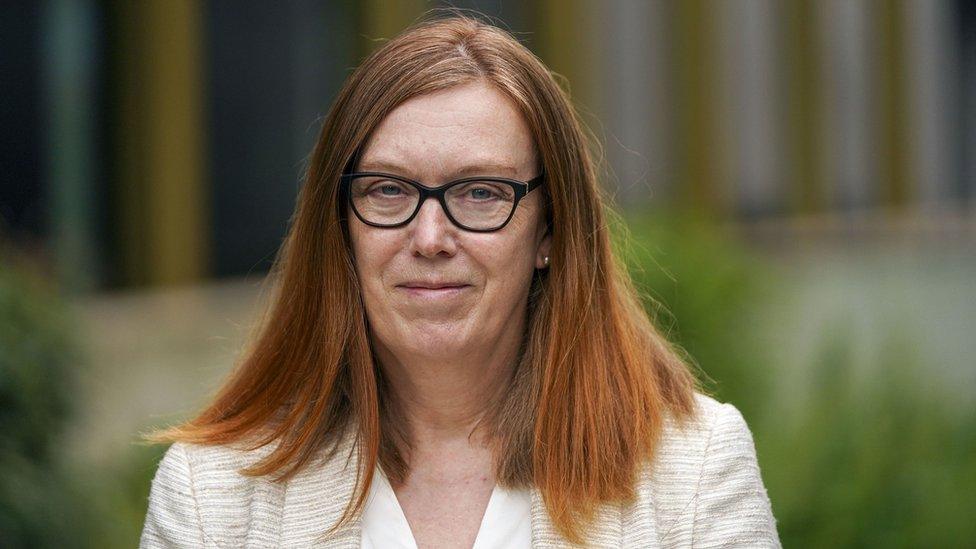
Also on the Queen's Birthday Honours list are members of the science community that worked together to tackle coronavirus.
Among them are the brains behind the design and trialling of the Oxford University/AstraZeneca vaccine - the second to be approved for use in the UK.
Its co-designer Sarah Gilbert, professor of vaccinology at Oxford's Jenner Institute and Nuffield Department of Clinical Medicine, is honoured with a damehood.
Sarah's colleagues, Andrew Pollard, director of the Oxford Vaccine Group, and Professor Peter Horby, joint chief investigator for the Recovery trial searching for coronavirus treatments, are also both knighted for their services to public health and medical research.
- Published11 June 2021
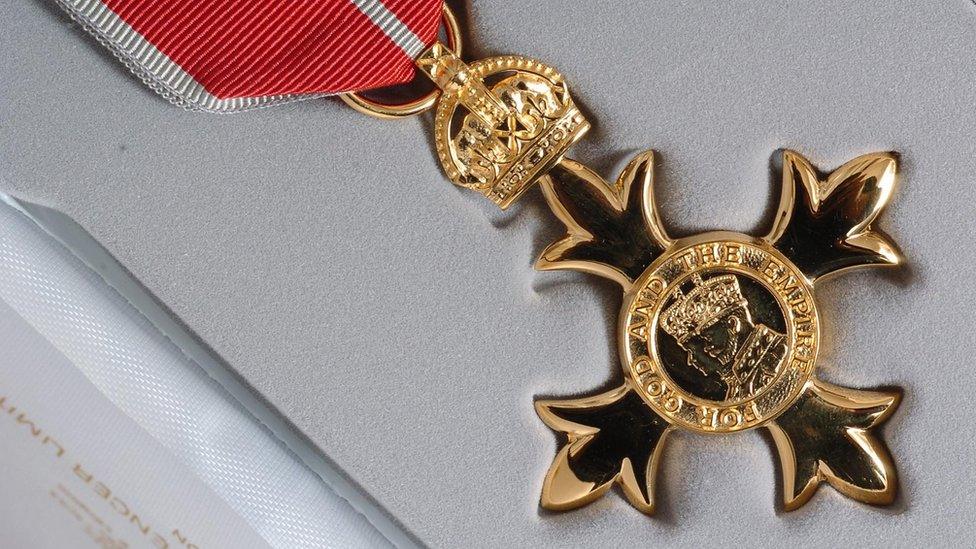
- Published11 June 2021

- Published10 June 2021
